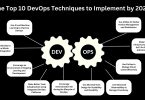RightsCon, the annual conference dedicated to digital rights, facilitated discussions on various pressing issues concerning digital rights, including the regulation of potential AI-related harms and strategies for circumventing surveillance. The conference, organized by Access Now, provided a unique platform for individuals from major tech companies to engage with their staunchest critics.
Five Key Insights from RightsCon: A Recap of Noteworthy Discussions
Scrutinizing AI Harms
The prominent theme at RightsCon revolved around the potential harms associated with artificial intelligence (AI). Numerous panels and speakers dedicated their discussions to AI’s adverse effects, showcasing a significant increase compared to previous years. The UCLA Law School’s Institute for Technology, Law and Policy hosted two roundtables focusing on AI regulation, emphasizing the growing power of big tech and its reliance on data. Disagreements surrounding the rules for police utilization of AI-driven facial identification systems in European Union member states caused a breakdown in talks at the European Parliament. Kent Walker, Google’s President of Global Affairs, stressed the importance of responsible AI guided by human rights standards.
Whistleblowers and Dissenters
Despite major tech companies like Meta, Microsoft and Amazon sponsoring the event, RightsCon also provided a platform for whistleblowers and tech defectors, particularly former Twitter employees. During a panel discussion, former Twitter workers warned about the unpreparedness of social media platforms for the upcoming 2024 U.S. presidential election. Anika Collier Navaroli, a former Twitter employee, emphasized the need for more support and safe spaces for whistleblowers to come forward and share their insights.
Encryption Challenges
Representatives from various companies spoke out against proposals from governments worldwide, including the U.S., UK and Australia, which could hinder the functioning of encrypted messaging applications. Figures such as Will Cathcart, head of WhatsApp at Meta, highlighted the global threats faced by encryption. Meredith Whittaker, President of the Signal Foundation, stated that their purpose is to provide a genuinely private means of communication and expressed concern over any attempts to restrict encrypted messaging.
Addressing Spyware
RightsCon consistently addresses the issue of spyware, given the participation of individuals from countries where security services frequently hack into the phones of journalists, dissidents, and human rights advocates. Security researchers set up a table to detect spyware on participants’ phones, drawing significant attention throughout the conference. In 2022, Costa Rica, the host country of RightsCon, became the first nation to propose a global moratorium on the trade of spyware. Amnesty International called for an immediate global ban on highly invasive spyware, while Fionnuala Ni Aolain, the U.N.’s Special Rapporteur on counter-terrorism and human rights, presented her proposal at the conference for establishing legal liability for companies selling tools to governments without adequate human rights diligence.
Navigating Real-World Borders
Despite being a global conference intended to foster cross-border dialogue on human rights in technology, RightsCon faced overshadowing challenges. Over 300 participants from 64 countries were barred from attending in person due to visa-related issues imposed by Costa Rican authorities. This unfortunate circumstance led to the absence of several speakers on panels addressing African issues. Timnit Gebru, an AI researcher from Ethiopia, directly confronted the visa system, describing it as the current embodiment of the largest apartheid system.








